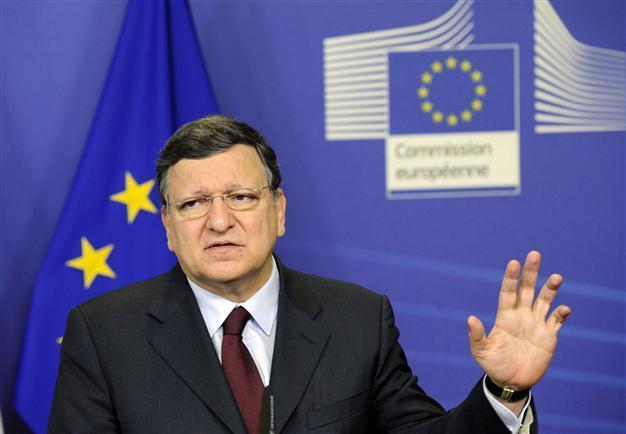EU axes Turkish growth forecasts citing political, financial risks
BRUSSELS

The report projected that Turkey would grow 2.5 percent this year, 0.5 points below its previous forecast and 3.0 percent in 2015, trimming previous prediction by 0.8 points. DAILY NEWS photo
The European Commission has slashed its expectations for Turkey’s economic growth in 2014 and 2015, on the grounds of “the domestic political uncertainty and the possibility of a further sell-off in Turkish assets.”“Growth was somewhat faster than expected in 2013, but the outlook for economic activity over the next two years has deteriorated against the background of recent developments,” the Commission’s “Winter Forecast 2014” report stated.
The report projected that the country would grow 2.5 percent this year, 0.5 points below its previous forecast and 3.0 percent in 2015, trimming previous prediction by 0.8 points.
“Considering the domestic political uncertainty and the possibility of a further sell-off in Turkish financial assets in the context of a normalization of monetary conditions in developed markets, the risks to this growth projection are biased to the downside,” the Commission report added.
The downward pressure on the Turkish Lira and the financial markets, stemming from the political crisis in the country and the U.S. bond purchase withdrawal, are forcing the Central Bank to adopt a bolder monetary policy that will eventually curb growth sharply, according to the report.
The report also drew attention to the expected fall in consumer spending and business investments, both prompted by higher interest rates.
In addition to the impact of lira depreciation and higher interest rates, “recent macro-prudential measures to lower household borrowing, some indirect tax hikes, a negative wealth effect, and declining confidence” would hit consumer spending, the report argued.
With regard to private sector investments, higher interest rates would drive “higher funding costs due to the stock market correction, and deteriorating balance sheets for companies with debt in foreign exchange.”
The Commission also predicted that annual inflation would be pushed up to 8.7 percent in 2014, spurred mainly by the pass-through from the recent currency depreciation, but also by some adjustments of indirect taxes.
















